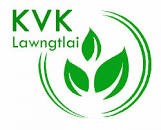This Department committed to the food security of the state through innovative research activities, to impart practical trainings to the farmers through demonstration and to refine agricultural technologies to suit the local conditions
INTRODUCTION
The Directorate of Agriculture (Research & Education) was established during 2001-2002 vide order No.A.11018/1/2001-AGR dated 01.10.2002 and the expost-facto approval for bifurcation of the Directorate of Agriculture into “Directorate of Agriculture (Research & Education) and Directorate of Agriculture (Crop Husbandry & Minor Irrigation) was conveyed by GAD vide their letter No.ID.No.A.46013/2/2006-GAD/53 Dated 30.05.2007.
VISION
Agriculture is the principal economic sector of the state and the livelihood of more than 65% of the state is dependent on agriculture to contribute in achieving the growth target in agriculture the Directorate of Agriculture is fully engage in adaptive research, field trials of crops and production of quality seeds in the Departmental farm. Also frontline demonstration, refinement of agricultural technologies are being taken up in the KVKs. Also training of farmers with the theme of learning by doing are also taken up where the farmers could be convinced by an age old saying of ‘Seeing is Believing’
Also it is envisage to train the educated rural youth in basic agricultural knowledge in the Integrated Training Centre for their own practical use.
DETAILS OF BUSINESS TRANSACTED BY THE DEPARTMENT
1. Agricultural Research & Education :
(a) Research : Adaptive research/On-farm Research are the major activities
(b) Education : Farmer’s training which is regarded as one of the integrated components of development is taken up under this programme. The technology assessed and refined through adaptive research/ On-farm research were disseminated to the farmers through training.
2. Krishi Vigyan Kendra :
Seven (7) Krishi Vigyan Kendra (KVK) or Agricultural Science Centre, an innovative institution for imparting vocational training to the practicing farmer, school drop outs and field extension functionaries had been established as indicated below:
(i)KVK Kolasib under Kolasib District (Established in 1978)
(ii)KVK Hnahthial under Hnahthail District (Established in 1994)
(iii) KVK Khawzawl under Khawzawl District (Established in 2002)
(iv)KVK Vanlaiphai under Vanlaiphai District (Established in 2005)
(v)KVK Lawngtlai under Lawngtlai District (Established in 2005)
(vi)KVK Saiha under Saiha District (Established in 2005)
(vii)KVK Lengpui under Lengpui District (Established in 2005)
As per Government notification No.A.11012/5/2005-AGR Dated 26.03.2007. Eighty (80) Nos. of various category of post for the five (5) new Krishi Vigyan Kendras (KVKs) under Agriculture Department were created as indicated below:
1. KVK Khawzawl - 16 Nos. of Post
2. KVK Lengpui - 16 Nos. of Post
3. KVK N. Vanlaiphai - 16 Nos. of Post
4. KVK Lawngtlai - 16 Nos. of Post
5. KVK Saiha - 16 Nos. of Post
Total - 80 Nos. of Post
In addition to the above, posts had been created under the two older KVKs that is KVK Hnahthial and KVK Kolasib during the years 1978 and 1994 respectively.
As per the norms of ICAR for recruitment of staff under KVKs, all the KVK are headed by a Programme Coordinator who is assisted by six Subject Matter Specialists and a Farm Manager from the discipline of Horticulture, Agronomy, Animal Science, Soil Science, Agril. Extension, Plant Protection, Fisheries, Home Science and Agro forestry.
It may be indicated that all the KVKs are having sufficient infrastructure such as Administrative building, Farmers’ hostel (with 50 person capacity), staff quarter, integrated demonstration fields, farm power machinery such as Tractor and power tiller and instructional and demonstration farms covering 1015 Ha of land.
3. Agricultural Farm & Quality Seed Production :
The Directorate of Agriculture (R&E) is looking after two farms namely Rotlang and Chemphai Farm. The nature of works taken up in these farms can be termed as adaptive research and field demonstration and seed production.
4. Integrated Training Centre :
Another priority programme under the Directorate of Agriculture (Research & Education) is the Integrated Training centre at Hnahthial. The Centre was established in 1981 to impart training to those extensions workers who are already employed and to those who wish to be self-employed. The duration of the certificate course is of two years. Since the time of its establishment more than 1000 extension workers had been trained in the centre. At present there are 42 trainees under-going in the institution. With more and more young people seeking employment, the training centre is being embraced by educated youths so as to be trained in the field of agriculture and allied subject for self employment/ employment in private firms etc. Every year hundreds of candidates turned up for interview for a chance to be enrolled in the Institution. The candidates so trained had been absorbed in private firms or were self employed. In this connection it may be indicated that the persons trained from the centre who are residing in the villages who are maintaining their own fields are fully capable of taking up the programme as progressive Farmers.

















